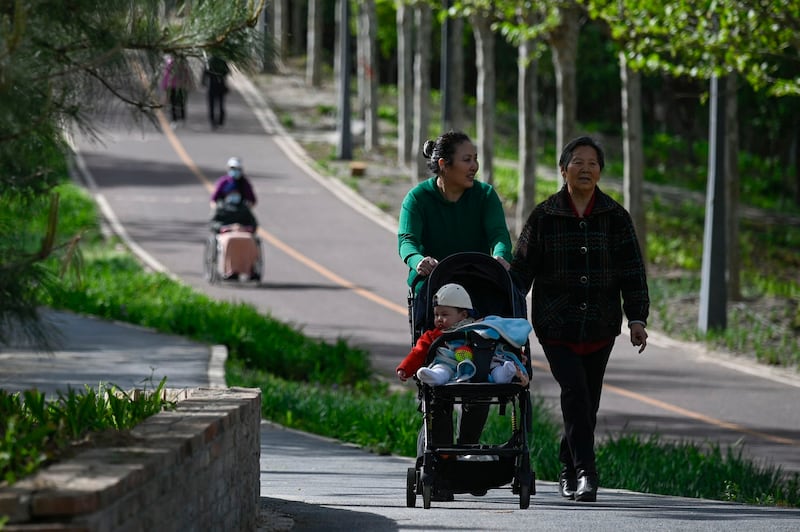Reversing years of expensive work, Chinese bulldozers are tearing up parks and gardens in the “green belt” around the southwestern city of Chengdu to create more farmland as Beijing pushes ahead with a food security strategy that some are calling “New Great Leap Forward.”
Before the pandemic, authorities had started to plow billions of dollars into the signature project, touted in state media as a sign of a greener future for China.
The green belt was home to the Tianfu Greenway around the city of nearly 10 million, and linked parks, gardens and "ecological zones," in a move some said would "envelop Chengdu in one massive garden."
But now, authorities led by "agricultural management" enforcement officials, are bulldozing much of the green belt in a bid to replace it with 100,000 mu (around 40,000 hectares) of farmland in the next three years.
”Restoration of farmland has begun near the ... Hi-tech Industrial Development Zone," an article on local news site Good Morning Tianfu reported on Friday. "It may seem a pity that the park encircling the city will be turned back into agricultural fields, food is the foundation of this country's existence."
"The government has made it clear that only grain and vegetables can now be grown on farmland, and that ... previous farmland must be reclaimed," it said. "This is the latest red line, and anyone who crosses it will fall from power."
Planning for a crisis?
A local resident who gave only the surname Tong for fear of reprisals said the campaign to reclaim land for farming purposes is happening across China, not just in Chengdu.
"Maybe it's to do with tensions in the Taiwan Strait or crisis planning for political and national security," Tong said. "But they are preparing."
"They want to make sure they have enough agricultural land, and they are stepping up investigations and cracking down via the agricultural management teams, through administrative channels," he said.

Beijing-based political journalist Gao Yu said the project only opened to regular users last year.
"Now they're bringing out the bulldozers again, to turn the park into fields," she said. "So much money was invested, all of it taxpayers' money."
Gao drew a parallel with the mass agricultural mobilization of the Great Leap Forward, when then supreme leader Mao Zedong sent officials into villages to order farmers around, and to set up backyard steel furnaces in a bid to catch up with developed countries.
"It's like the Great Leap Forward and the steelmaking campaign, which didn't make any [viable] steel in the end," Gao said. "Instead, what happened was that tens of millions of farmers starved to death."
Wasted taxes
The ruling Chinese Communist Party-backed news site The Paper quoted an employee at the Chengdu Tianfu Greenway Construction Investment Group as confirming the move, saying the land must all be converted to agricultural use by the end of this year.
He denied that green belt land was being demolished to create farmland, however, saying that city planning officials had said it had been agricultural land all along. But The Paper cited district ecological protection regulations from Jan. 1, 2013, as "clearly prohibiting the use of such ecological land for agricultural purposes."
Online comments estimated that it would take 442 years to earn back the 34.1 billion yuan originally spent on the greenway project, which was to have eventually encompassed the entire city, with returns on crops and produce that could be grown there.
"Twenty years ago, it was all about turning farmland into forests, and Chengdu invested 34.1 billion yuan to build the world's largest park all around the city," one comment read. "Now they are turning forests back into farmland, and tens of billions of yuan of taxpayers' hard-earned cash has been wasted."
"They only care about politics, not economics," another comment read.
Heavy-handed enforcement of new agricultural zoning rules has prompted a wave of online complaints about "agricultural management" officials in recent weeks.
A farmer in the southeastern province of Fujian who gave only the surname Yang said they bulldozed fields of daffodils he had been growing without the consent of those who had planted them.
Another farmer made a video complaining that they had changed the status of his bamboo crop and forced him to cut it down.
Translated by Luisetta Mudie. Edited by Malcolm Foster.
